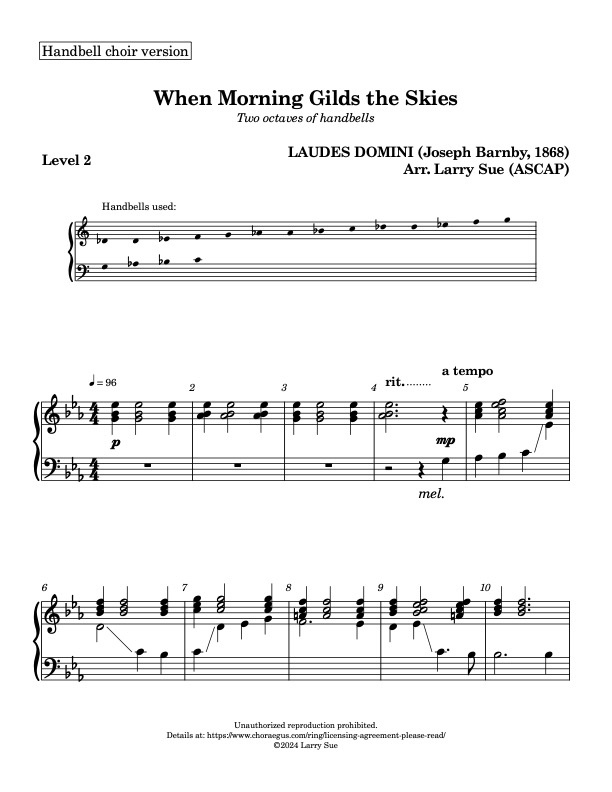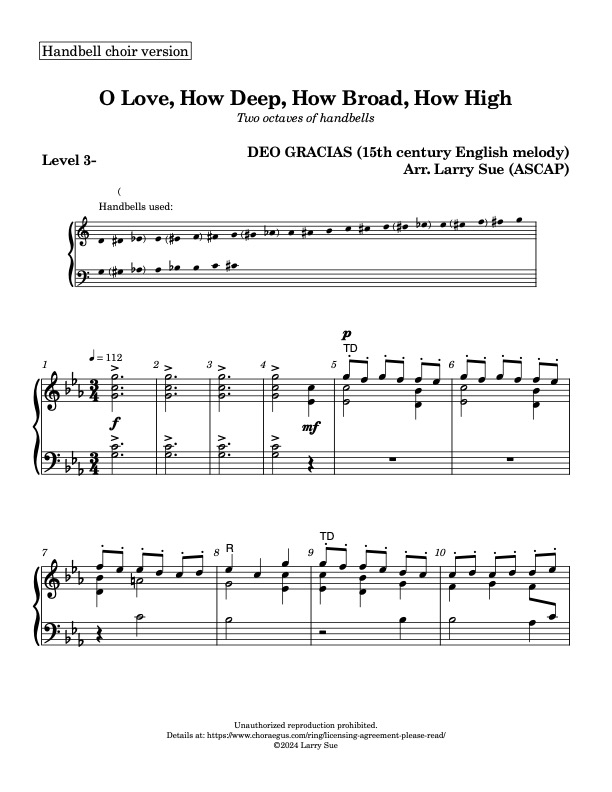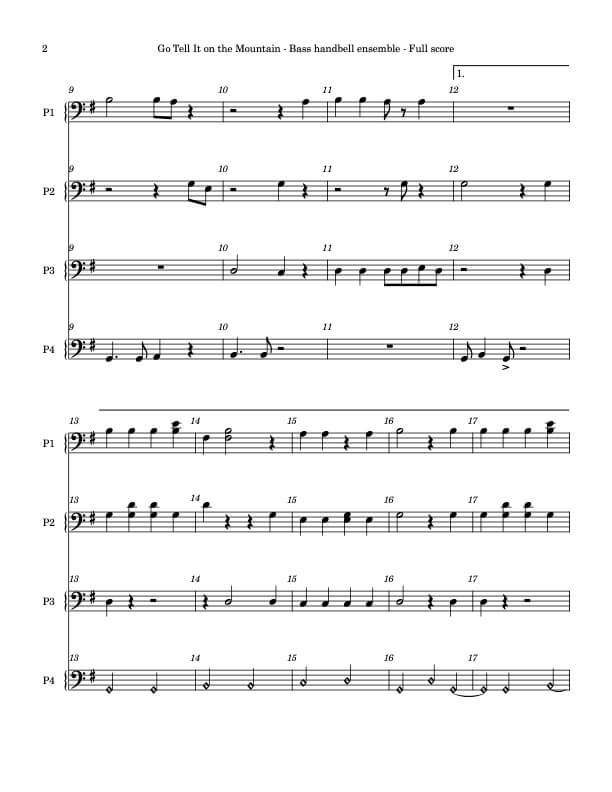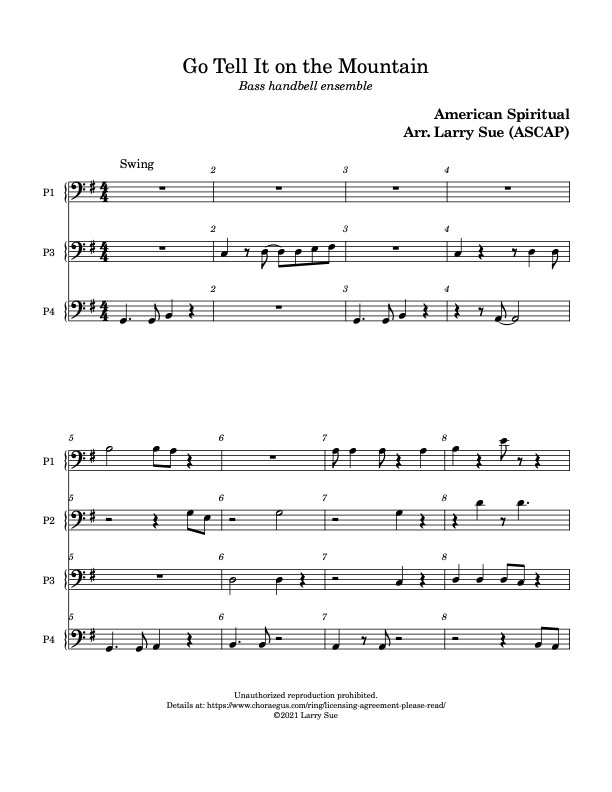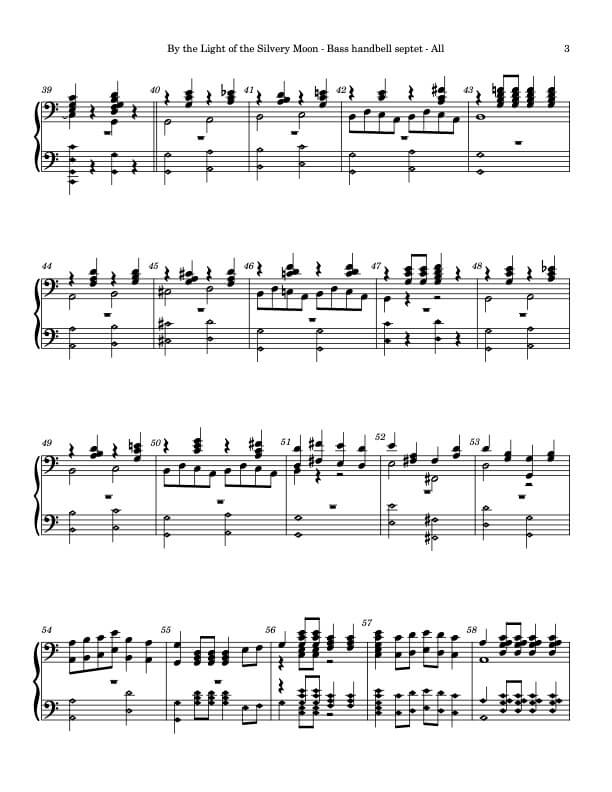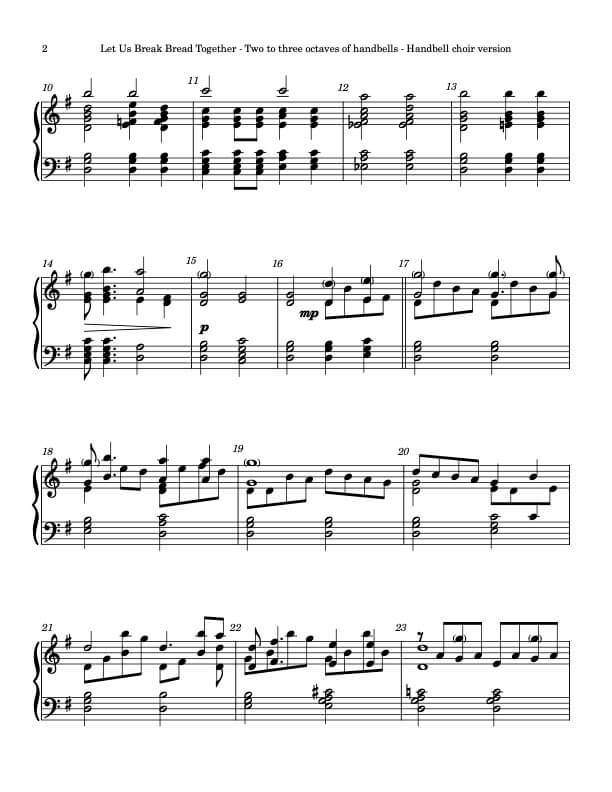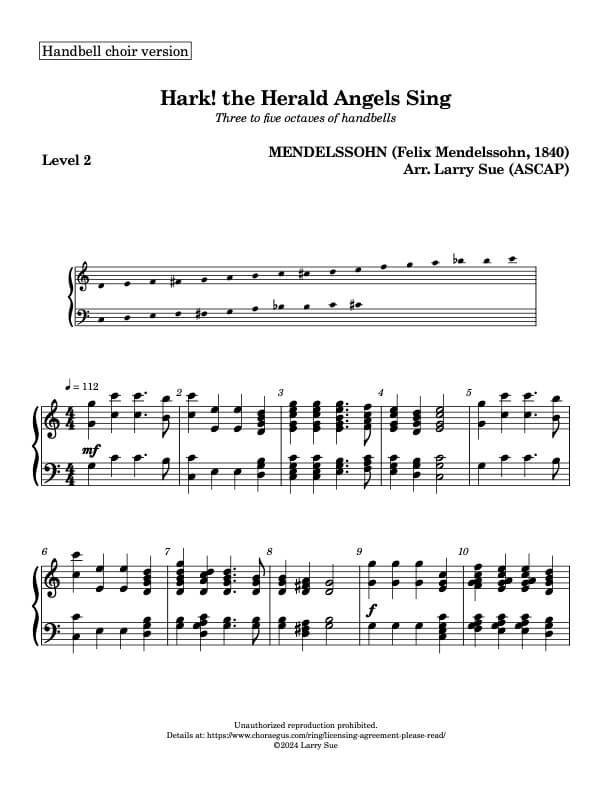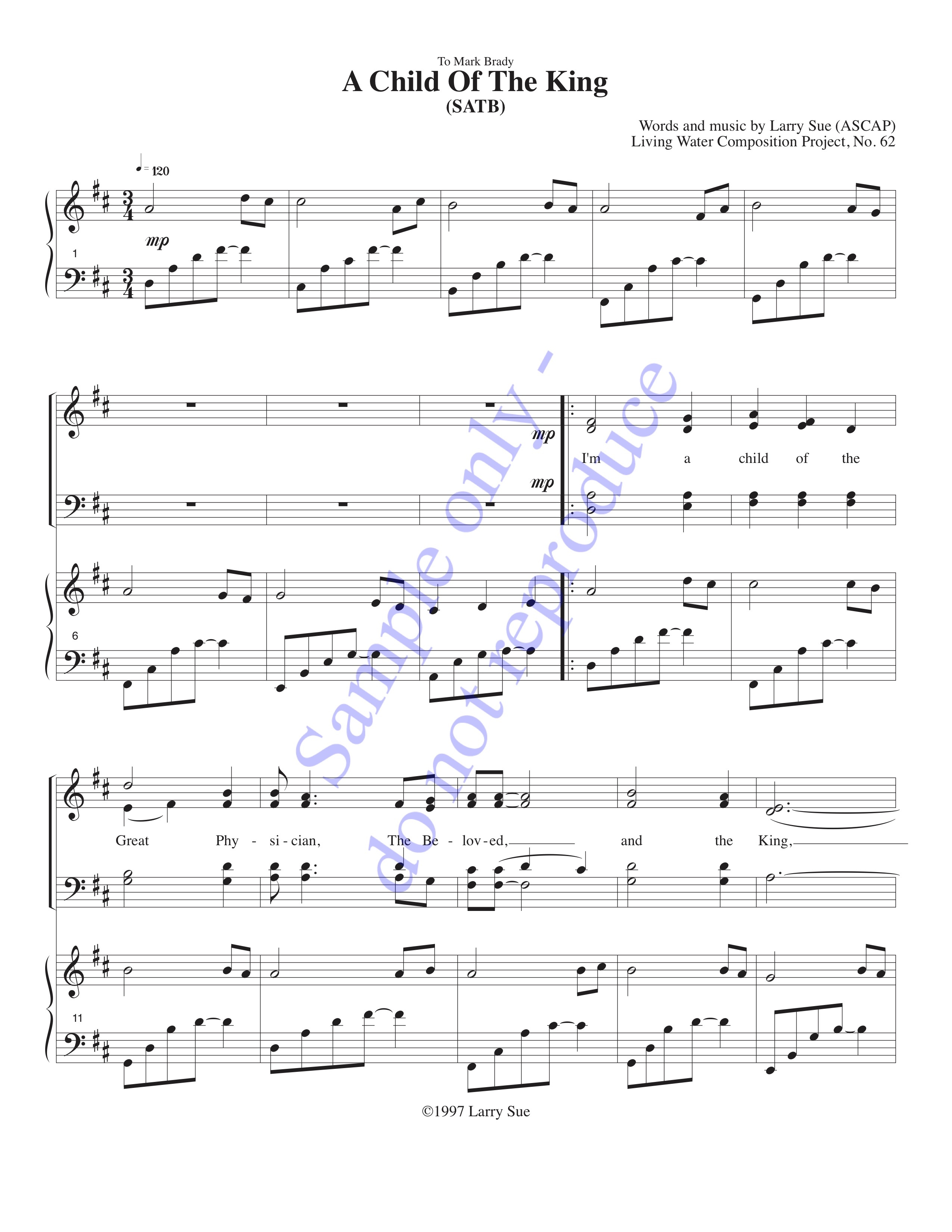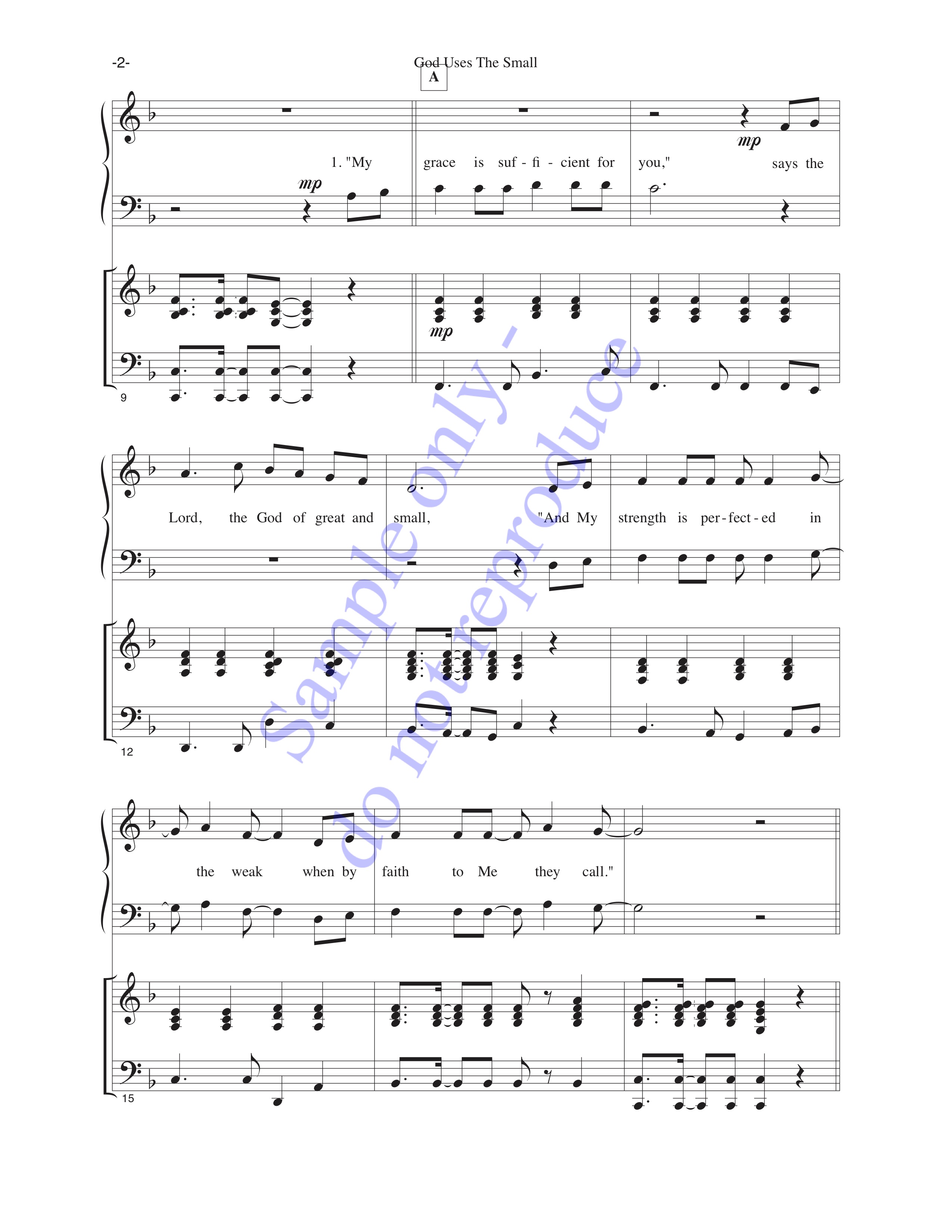Ukrainian Bell Carol was first known as “Schedryk”/«Щедрик» when Mykola Leontovych wrote it in 1916. And then… in 1941, Peter Wilhousky wrote the lyrics entitled “Carol of the Bells”, the title under which credit is usually given in the United States. We present our arrangement of Leontovych’s composition under its “more original” title. We think …
Tag: classical
Classical pieces are the source material for many incredible handbell pieces. They come with technical and expressive challenges which are augmented by the need to negotiate playing the handbell techniques written to go with content from the original work.
Ukrainian Bell Carol (Handbells, 5-7 octaves, Level 4)
Ukrainian Bell Carol was first known as “Schedryk”/«Щедрик» when Mykola Leontovych wrote it in 1916. And then… in 1941, Peter Wilhousky wrote the lyrics entitled “Carol of the Bells”, the title under which credit is usually given in the United States. We present our arrangement of Leontovych’s composition under its “more original” title. We think …
Apr 04
Cavatina (Handbells, 3 to 5 octaves, Level 3)
Stanley Myers’ Cavatina, brings a thoughtful air to the listener. Our arrangement for three to five octaves of handbells imitates the openness and simplicity of the original classical guitar score. Your ensemble will find it quite accessible in terms of the written notes, but will also experience tremendous scope for development of expression as they …
Cavatina (Handbells, 3 or 5 octaves, Level 3)
Stanley Myers’ Cavatina, brings a thoughtful air to the listener. Our arrangement for three or five octaves of handbells imitates the openness and simplicity of the original classical guitar score. Your ensemble will find it quite accessible in terms of the written notes, but will also experience tremendous scope for development of expression as they …
Aug 09
Nocturne (Handbells, 3 or 5 octaves, plus handchimes, 3 octaves, Level 2+)
Nocturne is an original work for three or five octaves of handbells (and three octaves of handchimes). I composed it as an entry in a composition contest, with the conditions being that it had to be Level 2 or 3, and be less than 4’30” in duration. I think you’ll like – or maybe love! …
Nocturne (Handbells, 3 or 5 octaves, plus handchimes, 3 octaves, Level 2+)
Nocturne is an original work for three or five octaves of handbells (and three octaves of handchimes). I composed it as an entry in a composition contest, with the conditions being that it had to be Level 2 or 3, and be less than 4’30” in duration. I think you’ll like – or maybe love! …
Aug 02
Sleigh Ride (Mozart, Drei Deutsche Tänze, No. 3) – Sixteen handbells
Wolfgang Amadeus Mozart, one of the exceptional musical geniuses of all time, started composing music when he was just four years old, and has had a lasting influence ever since then. He composed Drei Deutsche Tänze (“Three German Dances”) in 1791; the third dance in this suite bears the nickname “Sleigh Ride” (not to be …
Sleigh Ride (Mozart, Drei Deutsche Tänze, No. 3) – Sixteen handbells
Wolfgang Amadeus Mozart, one of the exceptional musical geniuses of all time, started composing music when he was just four years old, and has had a lasting influence ever since then. He composed Drei Deutsche Tänze (“Three German Dances”) in 1791; the third dance in this suite bears the nickname “Sleigh Ride” (not to be …
Jan 10
Mahler Swing (Handbells, 5-8 octaves, plus handchimes, 2 octaves, Level 5)
I fell in love with Mahler’s symphonies a long time ago. They’re gigantic works which stretch the limits (so far…) of how musical expression can be built. As of the twentieth century, they represent the pinnacle of orchestral composing. Mahler’s first symphony is about an hour in length (around three times the length of Mozart’s …
Mahler Swing (Handbells, 5-8 octaves, plus handchimes, 2 octaves, Level 5)
I fell in love with Mahler’s symphonies a long time ago. They’re gigantic works which stretch the limits (so far…) of how musical expression can be built. As of the twentieth century, they represent the pinnacle of orchestral composing. Mahler’s first symphony is about an hour in length (around three times the length of Mozart’s …


